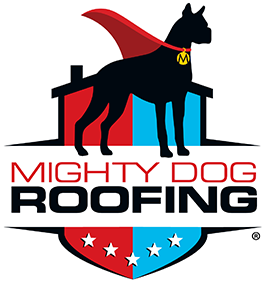A sturdy, well-maintained roof is essential for protecting your home from the elements, but working on a roof—whether for repairs, inspections, or installations—can be extremely dangerous. Every year, homeowners and contractors alike suffer injuries due to improper roofing safety practices. For Connecticut homeowners, the combination of seasonal weather changes and common roofing hazards makes safety a top priority.
In this blog, we’ll cover common roofing safety hazards, why safety matters in roof installation, and how homeowners can stay safe when inspecting their roofs.
Common Roofing Safety Hazards
Roofing is one of the most hazardous home improvement tasks. Whether you’re handling minor maintenance or hiring professionals for a full installation, these common roofing safety hazards should always be considered:
1. Slippery Surfaces
Connecticut’s weather can make roofs particularly treacherous. Rain, snow, and ice create slippery conditions, increasing the risk of falls. Even dew in the early morning can make shingles slick, so it’s essential to wait until surfaces are dry before stepping onto the roof.
2. Steep Roof Pitches
Many homes in Connecticut have steeply pitched roofs, making them difficult to navigate. The steeper the incline, the easier it is to lose your footing. Special safety equipment, such as harnesses and guardrails, should always be used when working on high or steep roofs.
3. Loose or Damaged Roofing Materials
Missing or loose shingles, rotting wood, or structural damage can make a roof unstable. Homeowners inspecting their roofs should be cautious of weak spots that could give way underfoot.
4. Electrical Hazards
Overhead power lines near a roof pose a significant risk. Accidental contact with power lines while using metal ladders or tools can result in electrocution. Homeowners and contractors should always be aware of nearby power lines before starting work.
5. Improper Ladder Use
Many roofing accidents occur before a person even steps onto the roof. Ladders that are too short, placed on uneven ground, or not properly secured can lead to serious falls. Always use a sturdy, properly positioned ladder with an extension at least three feet above the roofline for safe access.
Why Safety Matters in Roof Installation
Proper roofing safety practices aren’t just about avoiding injuries—they also contribute to a better-quality installation and long-term home protection.
1. Prevents Accidents and Fatalities
Falls are the leading cause of injury in roofing work. The Occupational Safety and Health Administration (OSHA) has strict guidelines in place for roofing safety, requiring the use of fall protection systems. Even homeowners conducting simple inspections should follow safety precautions to avoid unnecessary risks.
2. Ensures Proper Installation
Professional roofers use safety equipment that allows them to work efficiently without compromising quality. Rushing through a job due to unsafe conditions can result in poorly installed shingles, leaks, and long-term structural issues.
3. Protects Against Liability
If a contractor is injured on your property and lacks proper insurance, you may be held liable. Always hire licensed, insured roofing professionals who follow strict safety protocols to protect both themselves and your home.
4. Reduces the Risk of Property Damage
Unsafe roofing practices can lead to structural damage. For example, improper ladder placement or walking on fragile sections can cause leaks, broken shingles, or even a roof collapse. Following safety guidelines helps maintain the integrity of your roof while preventing costly repairs.
How Homeowners Can Stay Safe When Inspecting Their Roof
Routine roof inspections help identify issues before they become major problems, but safety should always be the top priority. Here’s how homeowners can stay safe when checking their roofs:
1. Use Binoculars for a Ground-Level Inspection
Before climbing onto the roof, inspect it from the ground using binoculars. Look for missing shingles, sagging areas, or debris buildup. This method allows you to assess your roof’s condition without taking unnecessary risks.
2. Choose the Right Weather Conditions
Avoid inspecting your roof when it’s wet, icy, or windy. Slippery surfaces and strong gusts can lead to falls. Instead, choose a dry, calm day for your inspection.
3. Wear Proper Footwear
If you must climb onto the roof, wear rubber-soled shoes with good traction. Avoid sandals or shoes with smooth soles, as they can easily slip on roofing materials.
4. Secure Your Ladder
Position your ladder on stable ground, ensuring it’s at a safe angle (a 4:1 ratio of height to distance from the house). Have someone hold the ladder steady while you climb, and never step onto the top rung.
5. Use a Safety Harness
For added protection, wear a safety harness attached to a secure anchor point. This precaution significantly reduces the risk of serious injury in case of a fall.
6. Avoid Walking on Fragile Areas
Roofs with old or damaged materials may have weak spots that can collapse under your weight. Stick to the strongest sections and avoid stepping near skylights, vents, or edges.
7. Consider Hiring a Professional
If your roof is high, steep, or in poor condition, hiring a professional is the safest option. Experienced roofers have the equipment and expertise to inspect and repair roofs without putting homeowners at risk.
Final Thoughts
When it comes to roofing safety, Connecticut homeowners need to worry about the risks involved in inspections and installations. From slippery surfaces to steep pitches and electrical hazards, understanding these dangers can prevent accidents and ensure proper roof maintenance.
Whether you’re tackling minor repairs or considering a full roof replacement, safety should always be the top priority. By following these roofing safety tips, you can protect yourself, your home, and your loved ones while ensuring your roof remains in top condition for years to come.
If you’re ever unsure, it’s best to call in a professional to handle the job safely and effectively. Mighty Dog Roofing of Ridgefield is here to help. Schedule a free roof inspection today!


